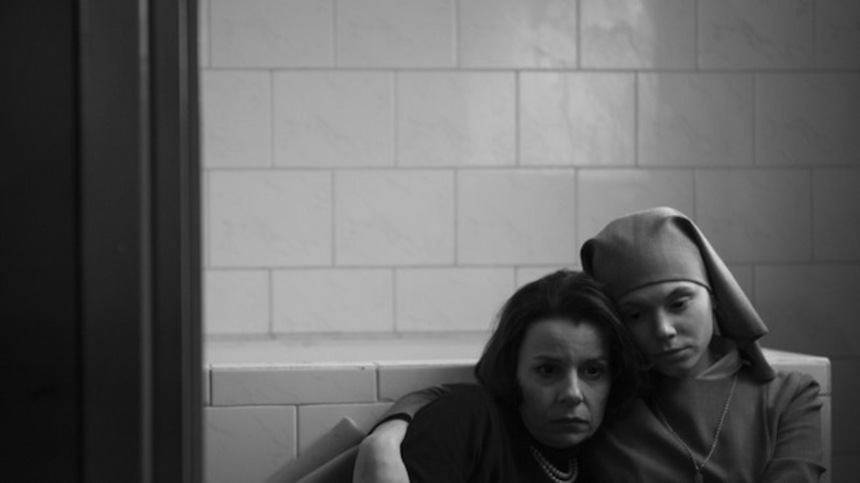Warsaw 2013 Review: IDA, A Revealing Tale Of Faith And Human Frailty

In terms of visuals and aesthetics Ida stands very close to Ingmar Bergman's films, and that's probably a compliment every director would like to hear. The film relies on single camera setup, where high-angle shots give the overview of each individual scene in a perfectly condensed and methodical manner, without giving away all the details, hence letting the viewer use his imagination in order to complete a particular frame. Here cinematography plays a role almost as important as the actors do; the camera doesn't move until the very last scene, but it's still able to depict the setting and all the events in an unequivocal, impactful manner. Through its profoundly mysterious and tranquil atmosphere Ida beguiles and fascinates, setting up a perfect mood for what's about to happen.
Shot completely in black and white and 4:3 aspect ratio Ida sets a strangely mystical tone in its first few scenes, somehow reminiscent of the one felt in Mother Joan of Angels. Hidden behind a convent's thick and cold walls lives the titular Ida (first-timer Agata Trzebuchowska), a young nun whose pure, pale face is as pretty as it is emotionless. She's about to leave the place for the first time since she was brought there in order to meet her aunt Wanda (mesmerizing Agata Kulesza), who wants to take her on a journey that is meant to reveal what really happened to Ida's Jewish parents during the II World War.
As soon as the two women get together it becomes perfectly clear how different they are. Ida is an innocent, inexperienced, deeply religious person who isn't aware of her femininity covered by a habit she so stubbornly wears all the time. That's why the scene in which we finally get to see her long, blond hair makes a really huge impression - she, along with the viewer, gradually realizes that behind this conservative nun posture exists a body of a beautiful, youthful girl.
On the other side there's Wanda, an angry, strong and fearless woman with a turbulent past. She loves to drink, flirt with strange men, converse about every controversial topic possible. She is a very complex character and though straightforward and tough, deep inside Wanda's emotional instability gets the best of her. On the trip she tries to show Ida a good time, even introduces her to a handsome musician (rising star Dawid Ogrodnik), but the girl's strict beliefs don't allow her to be open to new experiences.
Their trip has its ups and downs, some heartening moments and some saddening ones, but when the horrible truth is finally revealed and those two women go back to their homes they understand how eye opening the whole affair really was. Wanda's self-destructive attitude guides her to a tragic final decision, while Ida chooses to leave the convent once again to step into Wanda's shoes for a one eventful night, finally convincing herself to try the forbidden fruit called earthly pleasures. And though she puts the habit back on the next morning it's not obvious whether the road she walks on in the finale leads to the past or is just the beginning of an utterly new life.
Ida opens in Polish cinemas nationwide Friday, October 25th.

Do you feel this content is inappropriate or infringes upon your rights? Click here to report it, or see our DMCA policy.






